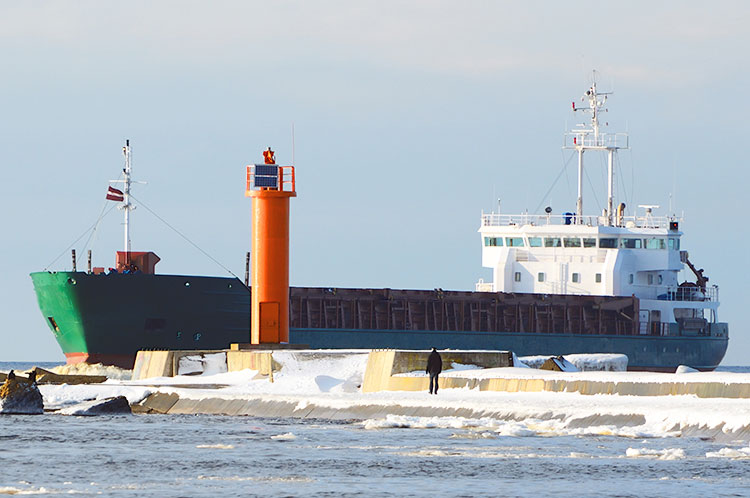December 27, 2018 Reading Time: 4 minutes
 Reading Time: 4 min read
Reading Time: 4 min readImage credits: vichie81/depositphotos
Anushka Wijesingha and Aquilah Latiff*
This September marked the tenth anniversary of the onset of the Global Financial Crisis (GFC). In its immediate aftermath, trade recovered faster than the overall global economy, and it is widely recognised that one of the key reasons for this was countries not descending into a ‘race-to-the-bottom’ tariff war. Unlike during the Great Depression of the 1930s, countries did not impose protectionist tariffs against each other. Indeed, after the 2008 crisis, the G20 countries did a remarkable job of coming together to fend off protectionist tendencies and take a coordinated approach to global trade.
Fast forward 10 years, post-crisis era trade has undergone some major shifts. Asia – led by China – has emerged as the centre of gravity for much of the world’s supply chains. Meanwhile, certain industries in parts of rural America, Europe and Britain have not been able to adjust to advancements in production technology and the rise of the digital economy. Most notably, the promise of improved global economic governance simply has not materialised. While the G20 was able to fight the initial fires, neither it nor the post-WWII multilateral financial institutions have been successful in making huge strides since then. In addition, the growth of nationalist sentiment in many countries is likely to impede cooperation in this present time.
Indeed, a subtler form of protectionism has been creeping in the form of ‘non-tariff barriers.’ These are well documented in the Global Trade Alert (GTA)1 database. According to GTA’s latest assessment, the number of new discriminatory trade measures introduced per year jumped to 898 by week 43 of 2018, compared to 286 by week 43 back in 2009 – an increase of over 3 times. Around one-third of the discriminatory measures are subsidies or bailouts to domestic manufacturers and farmers.
Since the financial crisis, the language around trade has shifted. While politicians previously described it as a benign mechanism for promoting global growth, they now talk about ‘protection,’ ‘security,’ and ‘national interest.’ Through this linguistic metamorphosis,2 it has become apparent that trade is being used as tool of state strategy. A phrase highlighted at a trade conference that the author participated in recently captures this cogently: “Trade is a useful weapon in a nationalist narrative.”
The current US-China trade war has had striking national security undertones. While there are provisions within the World Trade Organization (WTO) framework for national security considerations, they are widely accepted as a ‘hole’ of sorts and require countries to be very restrained in their usage of it. But it is now being used more loosely, primarily by the US. As Mark Wu, Professor at the Harvard Law School, remarked at a recent forum that one of the authors participated in, the rise of the national security dimension in trade is probably a result of security failures in digital trade and cyber espionage.
No doubt, trade and foreign policy have been interwoven throughout history. However, the recent belligerent language around trade and the propagation of more nationalistic trade policies is creating an “us vs. them” mentality. Some political parties in the West have created a sense in their voting populations that most people have been excluded from the benefits of globalisation, when in fact this exclusion can be more closely attributed to a failure of those politicians to do the right reforms at the right times to prepare their populations for a changing global economy. In this, Germany stands out as a success story – it was compelled to do tough domestic reforms early and is now one of the most competitive economies in the world. Germany recovered quickest from the crisis and is now leading the way in technological advancements driven by ‘Industry 4.0.’
With emerging nationalism in the West, the rise of China and India and other emerging economies, and the pullback of the US from its global leadership role, the state of global economic governance is in flux. Clear and credible global economic decision-making – the kind of setup that helped the global economy navigate the post-WWII era or the immediate post-GFC era – are yet to emerge. If another economic downturn were to fuel further nationalist sentiment and erode international cooperation, the world might find itself on a familiar and rather unfortunate path, putting at risk the vast economic gains from global trade since WWII.
For smaller countries like Sri Lanka, domestic reforms should be a key focus in this new environment. While keeping a keen eye on global developments, Sri Lanka needs to focus on rapidly reforming its own trade and investment policies. Without the reforms to become a nimble and agile economy, Sri Lanka can get swept up in the tumultuous trade winds and miss out on the possible gains of a shifting global economic landscape.
1 Globaltradealert.org. (2018). Global Trade Alert. [online] Available at: https://www.globaltradealert.org/ [Accessed 27 Dec. 2018].
2 Harding, R. (2017). The Weaponisation of Trade: the Great Unbalancing of Politics and Economics. London: London Publishing Partnership.
*Anushka Wijesinha is an economist and an Advisor to the Ministry of Development Strategies and International Trade; Aquilah Latiff is a former intern at the Ministry and a final year economics student at the Royal Institute in Colombo. The opinions expressed in this article are the authors’ own and not the institutional views of LKI, nor do they necessarily reflect the position of any other institution or individual with which the author is affiliated.